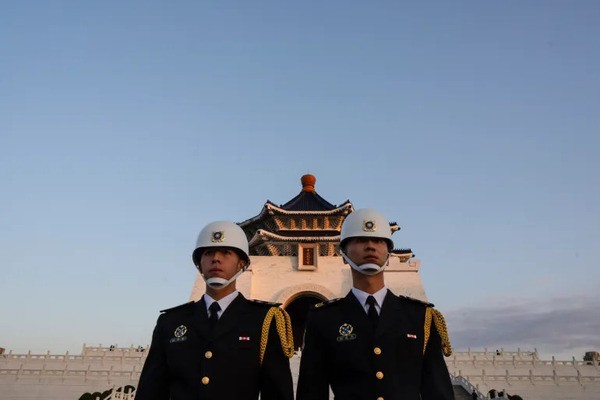Iran’s Plan to Strike Back Against the U.S.
Iran’s Military Preparations Following U.S. Attacks
Loading...

To some, inaugural president Chiang Kai-shek was a revered liberator, while to others, he was viewed as a harsh dictator.
In Taipei, Taiwan, with the inauguration of its eighth president looming next week, the nation grapples with the legacy of its inaugural leader, Chiang Kai-shek. For some, Chiang is revered as the "generalissimo" who liberated Taiwan from Japanese colonization, while for many others, he is seen as the authoritarian figure who imposed martial law and initiated the era of White Terror lasting until 1992.
For years, conflicting narratives have divided Taiwanese society, and recent efforts towards transitional justice appear to have exacerbated these divisions. Now, concerns are emerging about the potential impact on Taiwan's ability to present a unified defense against China's increasing assertiveness in claiming the self-governed island.
Historian Dominic Meng-Hsuan Yang from the University of Missouri in the United States expressed apprehension, stating, "There is concern about whether civilians and the military can effectively collaborate to defend Taiwan when the need arises."
The February 28, 1947 incident, where Chiang Kai-shek's Kuomintang (KMT) forces quelled an uprising by native Taiwanese, resulting in the deaths of possibly 28,000 individuals, marked a significant event. This tragic history, followed by a four-decade-long martial law period, resulted in further casualties.
In 2018, Taiwan officially addressed this traumatic past by establishing the Transitional Justice Commission, modeled after truth and reconciliation initiatives seen in Africa, Latin America, and North America. Its aim is to address historical human rights violations and other atrocities.
However, when the commission concluded its proceedings in May 2022, advocates and observers expressed disappointment, noting a lack of truth and minimal reconciliation.
Almost immediately after its inception, the process of implementing transitional justice became entangled in the politically charged blue-versus-green divide that has long characterized Taiwan's sociopolitical landscape. In this context, "blue" symbolizes KMT supporters, while "green" represents the ruling Democratic Progressive Party (DPP).
A recently published anthology titled "Ethics of Historical Memory: From Transitional Justice to Overcoming the Past" delves into how Taiwanese perceptions of the past influence their approach to transitional justice. As these perspectives are often shaped by political allegiance, each side advocates for its own interpretation of Taiwan's history.
Jimmy Chia-Shin Hsu, a research professor at Academia Sinica's legal research institute who contributed to and edited the book, elaborated on this dynamic, stating, "That's why the progress of transitional justice appears to have stalled. Whatever truths it reveals are overshadowed by the blue-green narrative."
A non-partisan view, Hsu said, is to credit the DPP with codifying transitional justice and Lee Teng-hui, the first democratically elected KMT president, with breaking the taboo on broaching the February 28 Incident.
Through meticulous research of military archives, Yang has uncovered instances where Chinese individuals were abducted and coerced into serving the KMT during the final years of the Chinese Civil War. Those who attempted to escape faced torture and even death. Additionally, native Taiwanese who resisted the KMT's suppression were persecuted as communists.
"During the era of martial law, the military was perceived as an instrument of the dictatorship, yet they also suffered under the regime," Yang explained to Al Jazeera. "Unfortunately, the transitional justice movement missed an opportunity to foster reconciliation between Taiwanese society and the military."
According to Hsu, given Beijing's aggressive stance, it is imperative for people from all walks of life in Taiwan to unite under a common cause.
"As we confront the threat posed by the Chinese Communist Party, it is crucial that we come together to shape our collective future," stated Hsu during a packed book discussion at the Taipei International Book Exhibition in late February. "The way we remember our past will inevitably influence the trajectory of our future."
Iran’s Military Preparations Following U.S. Attacks
Troops remain in five strategic locations, raising fears of renewed tensions and long-term occupation.
Opposition forces have taken control of the capital after a significant offensive. Here is how it unravelled.
